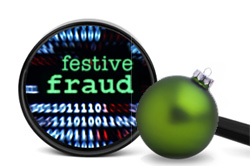A few weeks ago, we wrote about a phone-based scam that had come to the fore. If we wanted, we could make every one of blog posts about one or more of the new scams or phishing attempts that have come to light, but by and large we want to keep things a little more varied.

However, at the end of last week – set to coincide with the start of the Christmas shopping season and what the American’s call Black Friday* – a new fake email has been doing the rounds.
It claims to be from Apple’s iTunes Store and offers you credit on music, games and the like. But if you follow the instructions, download and decompress the ZIP file, you give hackers access to your computer, your passwords and other information.
In the scheme of things, this is far from the most ominous, dangerous or disruptive scam we’ve seen – so why are we giving it airtime?
The answer is due to its timing.
From here on it until Christmas – and then into the new year – you are likely to receive an unprecedented number of emails from companies offering you discounts and savings.
Most, of course, will be legitimate, but for hackers, preying on people’s desire for a festive freebie or seasonal saving is a great way to get people to unwittingly click on something that perhaps they would have been more suspicious of at another time of the year.
So, remember, if something sounds to good to be true, it probably is – especially at Christmas!
*BTW, ‘Black Friday’ may sound an ominous name for the start of the Christmas shopping period, but it’s actually a tongue-in-cheek term that refers to the time when shops get their accounts out of the red and back into the black!
If you would like more advice on protecting your computer systems from malware, viruses and cyber attacks, call us on 01225 636000 or email us.

